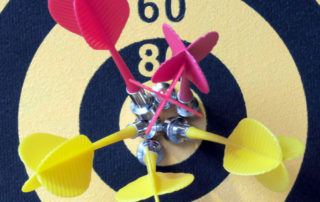A Personal Message from John Kehoe
As you are probably aware I have been writing my new book Quantum Warrior – The Future of the Mind for the past two and a half years. I am happy to say it is now complete and scheduled for release in October. The new methodology presented in this book takes the teachings of mind power to a different level, and there are many new and revolutionary techniques contained within this system. I will be sharing many of these methods with you over the coming months. I can’t think of a time I have been more excited or inspired. It reminds me of when I first began presenting the mind power course in 1978. The concept that our thoughts influence what happens to us, that they help to shape our reality; this was a foreign concept to most people back then. Now of course this is common knowledge, even if it’s not always practiced. We can now take the next step and begin living the quantum truths, which tell us we are one with everything and have unlimited potential to do or become anything. When you hear more of this new vision you will understand why I am so excited. I recently presented my first workshop on Quantum Warriorship and the response from those who attended was both gratifying and thrilling to witness. Each of us has the potential to live in an extraordinary way, and harnessing our own inner powers is the key to a successful and happy life. You are going to hear lots more about this next month. All the best, John






